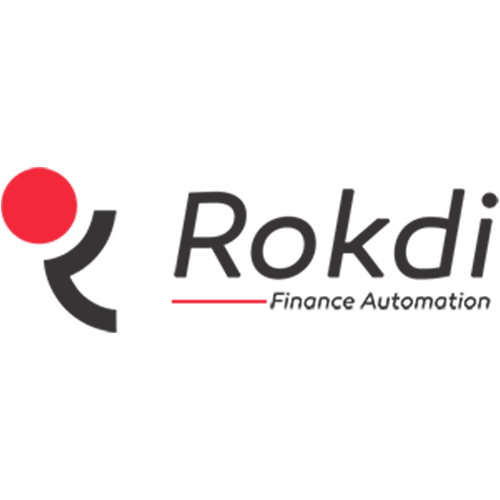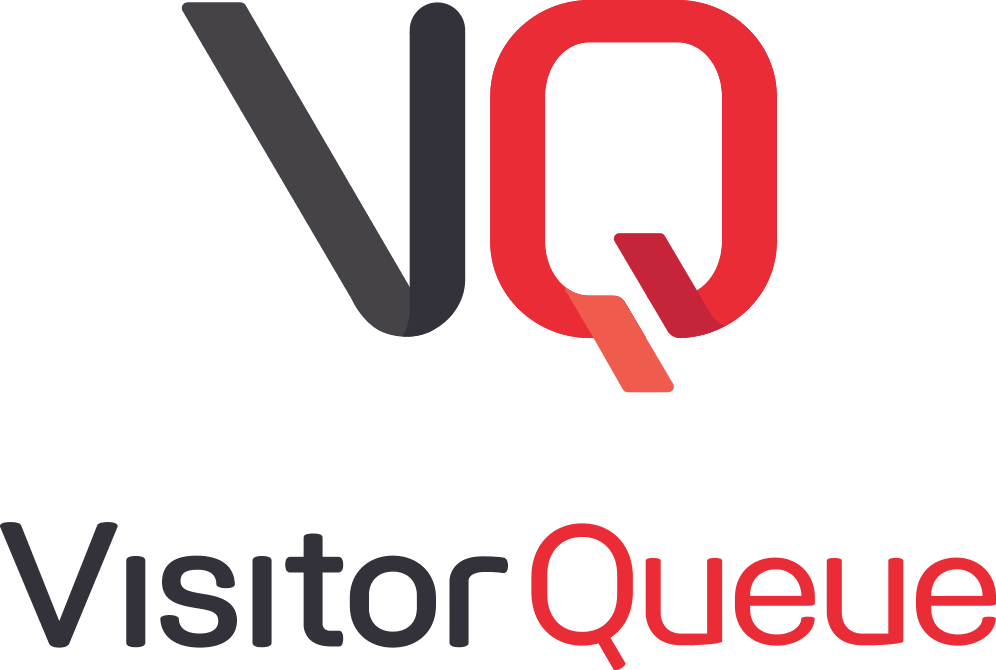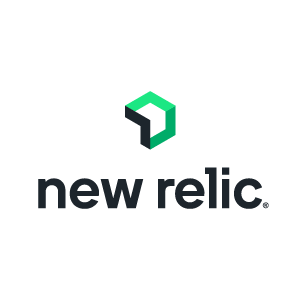What Is Website Monitoring Software?
Website monitoring software is a very useful tool that helps businesses and organizations maintain a careful eye on their websites to make sure they are always working well. This software keeps an eye on a website's performance, functionality, and uptime all the time. If it finds any problems or inconsistencies, it lets the website owner or administrator know.
Website monitoring software is now a must-have for any business or organization that depends on its website for sales, customer engagement, or information sharing. This is because having a strong online presence is becoming more and more important. This software is very important for keeping the user happy and trusting the website. Even a small delay or downtime can hurt the website's performance and brand image.
Website monitoring software usually employs a number of tests and metrics, such as uptime monitoring, server response time, page loading speed, and transaction tracking, to make sure a website works and performs at its best. These technologies also let website owners set up bespoke alerts that will let them know about problems via email, SMS, or other means so they can fix them right away.
Website monitoring software also gives website owners detailed data and analytics that help them understand how their site is doing and how people are using it. These reports help them find and fix problems that keep coming up, improve the performance of their website, and make decisions based on data.
There are a lot of things to think about when choosing website monitoring software, like how easy it is to set up and use, how well it works with other tools, and the price. Some software also has more complex features, such as real-time performance assessment, monitoring of mobile apps, and monitoring of many locations.
What Are the Recent Trends in Website Monitoring Software?
In the past few years, the need for website monitoring software has grown a lot as businesses and groups have realized how important it is to make sure their online presence is perfect. Website monitoring software has changed to keep up with the changing digital world and the needs of users.
Before making a purchase decision, potential purchasers should keep in mind some of the most recent trends in website monitoring software that are good for them:
1. Monitoring in Real Time: Because the internet moves so quickly, businesses need to know right away if their website goes down or has performance problems. Real-time monitoring is a popular feature in website monitoring software. It lets consumers know right away when there is a problem.
2. Compatibility with Mobile Devices and Browsers: As more and more people use their phones and different web browsers to get online, website monitoring software needs to work with a wide range of platforms. This trend lets businesses see how their website works across different devices and browsers, giving them a full picture of their online presence.
3. AI and Machine Learning: AI and ML are changing the way we keep an eye on websites. AI and ML can help predict and stop problems before they happen by looking at and learning from a lot of data. This can improve website performance and consumer happiness.
4. API Monitoring: Businesses need API monitoring more and more because they rely on a lot of third-party services to run their websites. Website monitoring software now includes API monitoring, which lets organizations keep an eye on the performance of these services and find any problems that may come up.
5. Cloud-based monitoring: Cloud-based monitoring is becoming more popular, especially for small organizations and startups who don't have the money to pay for on-site monitoring solutions. Cloud-based website monitoring lets you keep an eye on your site's performance and uptime for a low cost and with a lot of possibilities.
6. Data Visualization: More and more people are using data to figure out how to make their websites work better. Website monitoring software now comes with data visualization capabilities that make it easy for businesses to look at and understand their website's performance statistics and make smart choices to improve their online presence.
Benefits of Using Website Monitoring Software
In the digital age we live in now, it's very important for businesses to have a strong online presence. For many businesses, a website is their store and the first place potential consumers go to get in touch with them. To get and keep clients, a website needs to be fast, trustworthy, and work well.
This is where software for monitoring websites comes in. Website monitoring software is a program that checks a website's performance, availability, and operation on a regular basis.
It sends website owners alerts and notifications in real time when there are problems or outages. This makes sure that businesses can act right away and limit the damage to their online presence. So why should you buy software to keep an eye on your website?
Let's look at the benefits in more depth.
1. Makes sure that the website is always available: If a website goes down, it might lose money, hurt its reputation, and make customers less likely to trust it. Businesses may keep an eye on their website's uptime and get alerts if there are any problems with website monitoring software. This lets them act right away and cut down on any possible downtime.
2. Enhances user experience: Errors on the website and slow loading times can make the experience bad for users, which could make them abandon the site and move their business elsewhere. Website monitoring software can assist find and fix problems with the performance of your website, making sure that users have a seamless and pleasant experience.
3. Improves SEO: Website monitoring software may also find and let businesses know about any SEO problems, such broken links, duplicate content, or missing meta tags. Fixing these problems can help a website rank higher in search engines, which will make it more visible and bring in more organic visitors.
4. Saves time and money: Website monitoring software automates the process of checking a website's performance and availability all the time. This saves firms a lot of time and money that they would have spent keeping an eye on the website by hand. Also, if your website goes down, you could lose sales and money, which makes website monitoring software a good investment.
5. Gives you useful information: Some website monitoring software not only checks how well your site is working, but also gives you analytics and reporting tools. This lets organizations keep an eye on their website's performance over time, spot trends, and make smart choices about how to make it better.
Important Factors to Consider While Purchasing Website Monitoring Software?
There are a few crucial things to think about while choosing the best website monitoring software for your business. You can make sure your website runs smoothly, quickly, and safely with the correct software. It can also give you useful information and data that you can use to make it better.
Here are some important things to think about when making your purchase:
1. Type of Monitoring: The first thing to think about is what kind of monitoring the software can do. Some solutions may merely check for basic uptime, while others may check for more detailed things like page load times, server response times, and transaction tracking. Look at what your website needs and pick a program that has the right kind of monitoring for your business.
2. Customization and Flexibility: Each website is distinct and may need different kinds of monitoring. Find software that lets you change the settings for monitoring parameters, notifications, and alarms. This will assist make sure that the program can be customized to meet your needs and give you accurate and useful information.
3. straightforward-to-Use Interface: Even though website monitoring may contain technical details, the program itself should have an interface that is straightforward to use and understand. This will make it easier and faster for you to set up and run the program. Also, think about if the program can be used on mobile devices and whether the mobile interface is easy to use.
4. Alerts in Real Time: A competent website monitoring program should let you know right away if there are any problems with the site's performance or downtime. This can help you act quickly and lessen the damage that any difficulties do to your website.
5. Data and Reporting: The software should provide thorough data and reporting tools that let you look at and understand how well your website is doing. To get useful information, look for options like historical data, trend analysis, and customisable reports.
6. Integrations: Think about if the product works with any other tools or platforms you use. This can make it easier to keep an eye on things and let you look at all the data at once.
7. Security Features: Since website security is very important, search for software that has security features like SSL verification, DDoS protection, and malware detection. This will assist keep your website and its users safe and secure.
8. Scalability: Your monitoring needs may alter as your website gets bigger. So, it's important to choose software that can handle the traffic your website gets now and can be expanded as your business grows.
9. Customer Support: Finally, think about how good the software provider's customer service is. Pick a firm that has good customer service that is always available, because any technical problems or downtime might hurt your website and business.
By taking these things into account, you can choose the best website monitoring software for your business and make sure that your site runs at its best, giving your visitors a good experience.
What Are the Key Features to Look for in Website Monitoring Software?
Businesses and organizations of all sizes need website monitoring software to make sure their online presence runs smoothly. Choosing the correct software that suits your goals and specifications is quite important.
When looking for website monitoring software, these are the most important things to check for:
1. Monitoring Website Performance: The main job of website monitoring software is to keep an eye on and track how well your website is doing. Find software that lets you see in real time how long it takes for a server to respond, how long it takes to load a page, and other important metrics that might affect how users feel about your site.
2. Monitoring Uptime and Downtime: Your website needs to be up and functioning all the time to get and keep consumers. Pick software that lets you know right away when your website goes down so you can fix it right away.
3. Support for Multiple Platforms: In today's digital world, it's important to have website monitoring software that works on more than one platform, such desktop, mobile, and tablet. This will make sure that you are keeping an eye on how well your website works on all devices.
4. Monitoring the User Experience: The success of a website depends on how well it works for its users. Look for software that has user experience monitoring to keep an eye on things like website load times, user behavior, and other things that can affect how happy users are.
5. Real-Time Reporting: To find performance problems and make decisions based on data, you need detailed and reliable reporting. Pick software that lets you see reports in real time, lets you customize dashboards, and has metrics that are easy to grasp.
6. Automated Alerts: Getting timely alerts about problems with your website is very important for fixing them promptly. Find software that can send you automated alerts by email, SMS, or mobile push notifications to let you know about any possible concerns.
7. Historical Data: You need to be able to look at your website's past performance in order to do comprehensive analysis and make plans for the future. Find software that lets you keep and look at old data to find patterns and trends.
8. Third-Party Integrations: A lot of website monitoring software works with other tools and platforms, like content management systems, e-commerce platforms, and marketing automation software. This makes it easier to keep an eye on how well your website is doing and make changes when necessary.
9. Scalability: As your business and website develop, so will your need to keep an eye on them. Choose software that can expand with you so you don't have to switch providers as your demands change.
10. Cost: Last but not least, think about how much the program for monitoring your website will cost. It could be tempting to go with the cheapest choice, but make sure you choose a supplier that is reliable and well-known that gives you good value for your money.
Why Do Businesses Need Website Monitoring Software?
"In today's digital age, a business's online presence is very important for its success. Having a working and easy-to-use website is important for getting and keeping clients, whether you run an online store or offer services online. But as websites get more complicated and the online world changes all the time, it's getting harder for businesses to make sure that their websites work well for everyone.
This is when you need website monitoring software. Website monitoring software is a very useful tool that keeps an eye on a website's performance, availability, and user experience all the time. It tells businesses right away if there are any problems or downtime, so they can fix them immediately before they affect their customers' experience.
Businesses may learn a lot about how their website is doing using website monitoring software and use that information to make decisions that will make it better. Website monitoring software not only helps make sure that users have a good experience, but it also helps keep a business's reputation and trustworthiness strong.
A website that goes down a lot or has performance problems might lose consumers and hurt the reputation of a firm. Also, website monitoring software can help firms find and correct security holes, which will keep their customers' data safe.
Businesses can also use website monitoring software to keep an eye on their website's traffic, page load times, and other important metrics over time to see how well it is doing. You can use this information to make the website work better and improve its overall performance.
How Much Time Is Required to Implement Website Monitoring Software?
The time it takes to set up website monitoring software can vary based on a few things. In general, it can take anywhere from a few hours to a few days to fully set up the software and get it functioning well. But the time it takes to really implement can also rely on how complicated your website is and what features you want to use.
Setting up the account and customizing it to match your needs is one of the first stages in using website monitoring software. This could mean putting up alerts, changing the look of dashboards, and connecting with other tools and platforms. This process can take anything from a few hours to a day, depending on how easy the software is to use and how well you know it.
After that, you need to add the scripts or code that will let you monitor your website. This phase can take a few hours because it requires you to upload code snippets to the backend or CMS of your website. Some website monitoring software, on the other hand, comes with plugins or extensions that can cut down on the time it takes to set up.
After you finish installing the monitoring program, you need to test it to make sure it works. This stage can take anything from a few hours to a whole day, depending on how complicated the website is. To make sure that the monitoring software is keeping track of all the right metrics, you will need to go through several pages and actions.
You will need to tweak the monitoring settings after the testing period to make sure you get useful insights and alerts. This stage can take anything from a few hours to a whole day, depending on how much you want to change and how complicated your website is.
Finally, you should check and improve your website monitoring tool on a regular basis to make sure it is giving you the most useful and up-to-date information. This stage can take a few hours each month to look at and make any changes that are needed, even while it is still going on.
What Is the Level of Customization Available in Website Monitoring Software?
Website monitoring software has a lot of adjustable options that can help businesses and organizations fulfill their specific objectives. The extent of customization that is possible depends on the software, but most alternatives let customers change their monitoring experience to fit their needs.
First of all, website monitoring software lets customers change the settings for their monitoring. This includes how often and how deeply scans are done, what levels of alarms should be set, and which pages or parts of sites should be watched. Users may choose how often the program analyzes their website for problems like server unavailability or slow page load times, and they can also set limits on when they want to get notifications.
They can also choose which pages or parts of the site to watch, making sure that the most important parts are always being watched. Second, certain website monitoring software lets you change how the user interface looks. This means that customers can set up the monitoring dashboard, reports, and alarms in a way that works best for them.
They can also select to get alerts through email, text message, or other forms of communication. This level of customisation lets users have a unique experience with the software and quickly find the information they need. Also, website monitoring software usually has reporting tools that you may change to fit your needs.
Users can choose the metrics and data they want to see in their reports and how often they want to get them. This is especially useful for organizations that need to report on certain things or want to keep track of and analyze certain parts of their website's performance over time.
Some powerful website monitoring software also lets users develop their own programs and tests. This lets businesses keep an eye on certain elements or functions that are unique to their website, such shopping carts or login systems. This level of customization can be helpful for businesses that have complicated websites or use programs that were made only for them.
Which Industries Can Benefit the Most from Website Monitoring Software?
Any business or group that uses a website to make money and build their internet presence should use website monitoring software. But some businesses can get the most out of this type of software. Let's look at the best industries that can use website monitoring software and why.
1. E-commerce: If an online store goes down, it might lose sales and hurt its reputation. This is especially true in the highly competitive world of online retail. E-commerce enterprises can keep an eye on their websites and fix any problems immediately with website monitoring software. This way, their consumers can always get the service they need.
2. banking: The banking business relies on internet platforms for a lot of things, such making transactions, managing accounts, and talking to customers. Website monitoring software is a must-have for banks and other financial institutions since they need their websites to work well and be safe.
3. Healthcare: Websites are utilized in healthcare to let patients make appointments, access medical records, and use patient portals. Healthcare firms can make sure their website is constantly up and operating with website monitoring software, which is important for patients.
4. Travel and Hospitality: Travel and hospitality companies use their websites to take bookings, make reservations, and help customers. Website problems can cost a lot of money, hence this industry needs website monitoring software.
5. Education: Schools and colleges rely on their websites a lot for course materials, online classrooms, and communication amongst students. Website monitoring software can assist make sure that these important systems are always up and running for students and instructors.
6. Government: The main place for people to get information and services is on government websites. Government agencies can immediately find and fix any problems with website monitoring software to make sure that their community can still access important resources.
7. Media and Publishing: To get their material to their viewers, media and publishing organizations need their websites to be dependable and work well. Website monitoring software helps find and fix any problems that could affect the user experience, making sure that material is delivered without any problems.
Conclusion
After doing a lot of research and looking at many options on the market, it's evident that any business that wants to increase its online presence and stay ahead of the competition needs to invest in trustworthy website monitoring software.
Website downtime and errors are not only expensive, but they may also hurt a company's reputation and make customers less likely to trust them. This is especially true as technology and the internet become more common. We found several important things that purchasers should look for in website monitoring software while we were testing it.
Some of these are real-time monitoring, warnings and reports that can be changed, solutions that can grow with your needs, an easy-to-use interface, and a wide range of testing possibilities. Also, it's important to think about the software's price and payment options, customer service, and reviews from other users. One of the best things about website monitoring software is that it lets you find and fix problems before they affect how well your website works.
This helps keep the website up and running as much as possible and makes sure that users have a smooth experience. Website monitoring software also gives businesses useful information about website traffic and usage patterns, which helps them make smart choices about how to improve their online presence.






















